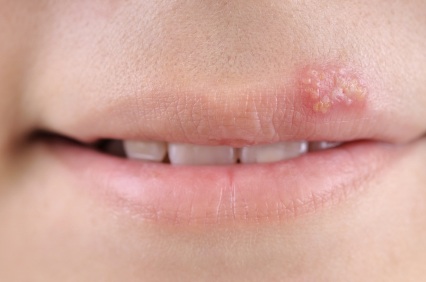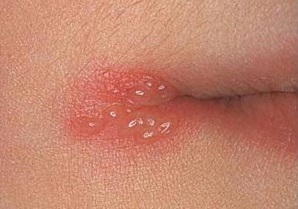Cold sores are a common viral infection, and they are also referred to as fever blisters. They are small blisters filled with fluid. 90% of people at least get a cold sore in their lifetime. They can pop up anywhere on the body, but they mostly appear on the outside of lips and mouth, fingers, cheeks or nose. The blisters will form, break and then drain. A yellow scab or crust forms and eventually peels off. A new layer of skin is left.
Are Cold Sores Contagious?
Of course, in fact, cold sores are highly contagious. Being a viral infection, the virus is spread through direct contact like contact with oral or genital secretions or contact with the skin. The sores are most contagious when they break – when their fluid oozes out of the blister. However, they are contagious from the minute you feel the first symptoms like itching or tingling around the mouth to the time they completely heal and disappear. Simply because the cold sore has a scab does not make it any less contagious. It can break when you are eating, smiling or even talking and the fluid will ooze out. Cold sores take about 2-4 weeks to completely heal, and they do not leave scars behind.
However, some children become seriously sick when they get cold sores. After the first cold sore, most people develop antibodies and they do not get cold sores again. Nonetheless, about 40% of American adults have recurrent cold sores.
What Happens If You Get Cold Sore?
Are cold sores contagious? Yes, they are. But what will you feel with cold sores? Before you get a cold sore, you will feel the symptoms and go through the following stages:
- Itching and Tingling: Most people experience a tingling, itchy or burning sensation a day before a tiny, hard and painful pimple appears then blisters erupt.
- Blisters: Along the edge where the skin of the face meets that of the lip, tiny blisters filled with fluid break out. They can also appear on the cheeks or around the nose.
- Crusting and Oozing: The tiny blisters might merge and erupt leaving shallow pores that are open and oozing some fluid. A crust covers it up after some time. Signs and symptoms are different depending if it is your first time or they are recurring. If they are recurring, chances are they will show up on the same spot they did the first time and the symptoms will be less severe.
For some people during their first breakout they also experience:
- Swollen lymph nodes
- Muscle aches
- Headache
- Sore throat
- Painful eroded gums
- Fever
Children below the age of 5 might have cold sores inside their mouths, and they are commonly mistaken for canker sores. Canker sores are not caused by herpes simplex virus, and they only attack the mucous membrane.
A cold sore will heal on its own, but you should call your doctor if:
- You feel irritation in your eyes
- The cold sores are recurrent
- Symptoms are serious
- The sores do not heal in 14 days
- You have a weak immune system
How to Avoid Spreading Cold Sores
You get a positive answer to the question “Are cold sores contagious?” so it is important to make sure that you do not pass them to another person or get one from another person. Here is how to avoid spreading or getting them:
1. Maintain Some Space
You can pass a cold sore by getting up close and personal with people. For example, you can get cold sores by giving an infected person a kiss on the lips. Blisters and sores in the genital area are caused by the same virus that causes cold sores. If you have a cold sore, avoid oral sex and keep your mouth as far as possible from your partner’s genitalia.
2. Avoid Sharing
Do not share things like towels, razors, toothbrushes, lipstick and lip balm when you have a cold sore. Anything that goes in your mouth should not be shared. This includes, spoons, glasses, cups, drinking straws, eating utensils a swell as food. The virus that causes cold sores can survive for a short while on non-living things thus making it easier to transmit.
3. Maintain Hygiene
When you have a cold sore, make sure you use hand sanitizers. This is because you can easily pass it on to someone else or to another part of the body via your hands. You should also clean anything you use with boiling hot water to kill the virus.
If I Get Cold Sores, How to Deal With It
You get a positive answer to "Are cold sores contagious?" it's time to find a answer. Certain strains of herpes simplex virus cause cold sores. Herpes simplex virus 1 is responsible for cold sores while herpes simplex virus 2 causes genital herpes. There is no cure for the herpes simplex virus infection so the blisters can recur. If you have cold sores, you can get relief from these 2 methods:
1. Take Medication
The healing process can be made faster by using:
- Penciclovir (Denavir)
- Famciclovir (Famvir)
- Valacyclovir (Valtrex)
- Acyclovir (Xerese, Zovirax)
Some of these are creams and others are pills. Generally, pills are more efficient compared to creams.
2. Home Remedies
You can also try these home remedies to ease the discomfort of a cold sore:
- You can use an over the counter ointment like Docosanol (Abreva). Apply it as frequently as possible and it might shorten the outbreak by a day or some hours.
- Healing can be sped up by over the counter preparations that contain drying agents like alcohol.
- Use a balm with sunblock or zinc oxide cream to protect your lips from the sun. If they become dry, use a moisturizer.
- Place a cool dump cloth on the cold sore. This will reduce the redness and assist with the peeling and improve healing.
- OTC creams with benzocaine or lidocaine have pain can assist with the pain.
